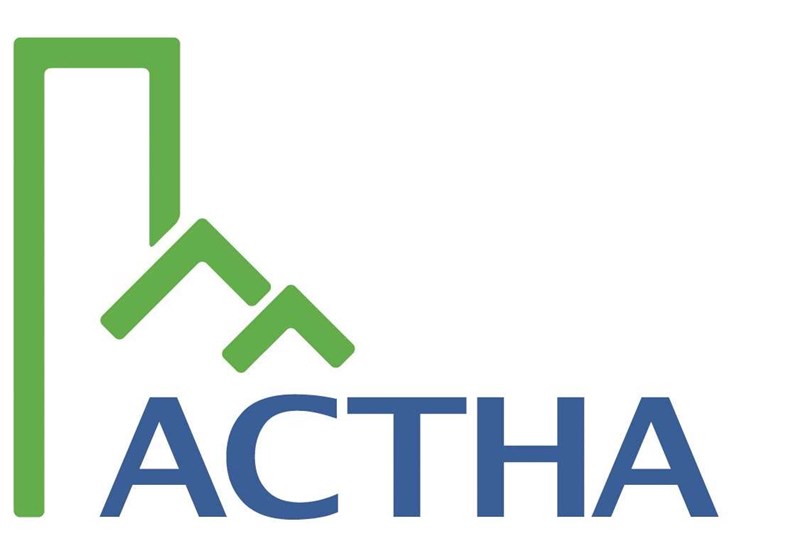Every condo or homeowners association has its own board and management company to handle the community's day-to-day business and administrative activities but who advocates for those communities at the municipal and state level? Who looks out for and strengthens the position of HOAs and their administrators through education and outreach? There's more than one answer to that question but in Illinois, the Association of Condo, Townhouse, & Homeowners Associations (ACTHA) is definitely a name to know.
As an organization, ACTHA is focused on providing targeted education and information to board members, owners, managers and others involved with Illinois' community associations. According to ACTHA Executive Director Gael Mennecke, ACTHA’s mission is “to provide information and education to board members, managers and owners. We do that through seminars, webinars, a monthly newsletter, and any other kind of educational opportunities we can provide for people involved with community associations."
By Residents, For Residents
Mennecke notes that ACTHA was founded by a small coterie of legal professionals in the early 1980s to fill a void they saw in the support system for condos, HOAs and other similar communities. By the time Mennecke came aboard in 1989, the group's scope had expanded, and today she says it has evolved into the only statewide organization of its kind representing both board members and owners.
"ACTHA is run by a volunteer board of directors," says Mennecke, "and the requirement to serve on the board is that you be a primary resident in your own community association, so when decisions are made about the group's programming or policy issues, it's done purely from a homeowner perspective. "That's perhaps how I would differ us from a group like CAI," she continues, "which has a board of directors composed of many entities within the industry in addition to homeowners."
According to the group's website (www.actha.org), "ACTHA is the only organization administered by a volunteer board of directors who are primary resident owners in a condo, townhome or an HOA.
“Volunteers are the lifeblood of ACTHA," says Mennecke. "We urge members to become active in our growth and influence."
In addition to being a unit owner, ACTHA's bylaws stipulate that board members must:
• Attend quarterly board meetings
• Attend ACTHA conferences
• Host an educational seminar
• Be actively involved in at least one ACTHA committee
According to Mennecke, "Our committees are open to any interested individual, whether living in an association or working in an industry serving community associations."
The four ACTHA committees are: Legislation, Education, Membership/ Networking and technology.
Education & Legislation
One of ACTHA's most important aspects is its educational programming for board members and residents of the communities they serve. According to the ACTHA website, "The benefits of community association living far outweigh the occasional challenges. ACTHA educational programs are designed to enlighten volunteer board members, committee members and owners on an array of topics that promote association harmony and strength, while averting or solving problems."
Topics that ACTHA offers boards and communities assistance with include everything from how to run an effective meeting to how to collect assessments, fund reserve and capital improvement projects, and decode financial statements. Mennecke also invites anyone with a good idea for a seminar topic or educational program to contact her at gael@actha.org.
"We try to schedule at least 2 webinars a month," says Mennecke. "We also do a Learn and Lead program that’s actually an ACTHA-certification program designed for people who want to be leaders within their community but we've also had other industry professionals take it, whether they be managers or engineers. It's a six-week course designed to focus on what we consider the core issues that an association deals with: governance, administration, meetings, elections, physical aspects, insurance and finance. There's a short test after each of the modules and once you complete the program, you get a certificate that's good for five years."
"We developed two case studies," Mennecke continues, "one for condos, and one for non-condo properties. The first one will be done in April. It's for Learn and Lead graduates only. We offer that program at least three times throughout the course of the year in different locations. We'll do other stand-alone seminars as well, and we also do an all-day conference which is coming up April 2nd."
Attendees of the day-long event have the option of sitting in on nine different programs divided into three different topic tracks, says Mennecke. "And we conclude the day with 'Ask an attorney,' which gives attendees the opportunity to ask questions of a panel of legal experts."
"We do two other trade shows with educational programming in the fall," says Mennecke. "These are half-day affairs, and not as much educational, but we do some interactive demonstrations, which are 20-minute, quick in-and-out things. And of course we do the newsletter."
When it comes to political activity, ACTHA remains non-partisan while advocating for the interests of condo, HOA and townhome communities. "We support legislation that enhances the lives of those residing in condo, townhouse and homeowner associations," says Mennecke, paraphrasing the position stated on the group's website. "We neither support nor endorse specific political candidates or parties."
During each Illinois legislative session, ACTHA follows relevant bills and discussions and retains a lobbyist to advocate on behalf of members for legislation that protects and/or improves community association living. "We encourage our members to express their opinions—to ACTHA and to state senators and representatives," says Mennecke. Residents and board members can sign up on ACTHA's website to receive legislative alerts via email—just click the icon on the ACTHA homepage. You can also view and download a copy of the Illinois Condominium Property Act. To view any of the bills ACTHA is watching in their entirety, Mennecke directs members to the Illinois General Assembly online at www.ilga.gov.
Moving Forward
Running a condo or HOA can be rewarding but it's not without its challenges and obstacles, says Mennecke. The toughest challenge, she says, "is apathy," followed by financial trouble. "I know a lot of boards have trouble getting owners involved," she says, "and all associations across the nation are facing foreclosures and individuals walking away from their property, leaving the remaining owners to take responsibility for the property as a whole."
HOAs and community associations don't have to face these challenges unarmed, however. That's why ACTHA exists and getting involved can help edge a condo community back from the brink, either financially or just administratively.
Going forward into the second half of 2011 and on into 2012, Mennecke says ACTHA's goals are basically, to “continue to be a resource for associations, particularly the board members. We're watching a lot of legislation, and employing a lobbyist in Springfield, who monitors legislation and who gets involved in those issues of pressing concern to us. That's our goal: to keep with our mission of promoting information and education."
If you are interested in serving on the board or on any of ACTHA’s committees, please contact Gael Mennecke, executive director, at gael@actha.org.
Debra A. Estock is managing editor, and Hannah Fons, associate editor, of The Chicagoland Cooperator. Editorial Assistant David Chiu also contributed to this article.







Leave a Comment